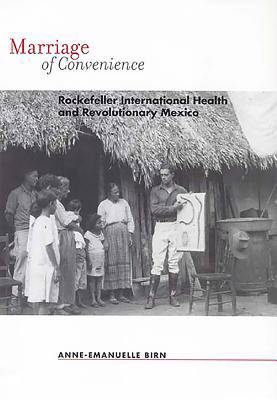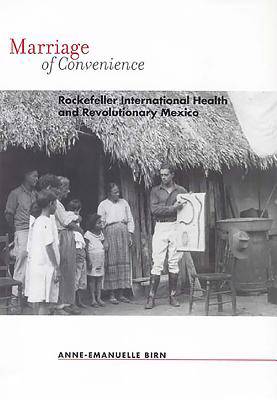
- Afhalen na 1 uur in een winkel met voorraad
- Gratis thuislevering in België vanaf € 30
- Ruim aanbod met 7 miljoen producten
- Afhalen na 1 uur in een winkel met voorraad
- Gratis thuislevering in België vanaf € 30
- Ruim aanbod met 7 miljoen producten
Zoeken
Marriage of Convenience
Rockefeller International Health and Revolutionary Mexico
Anne-Emanuelle Birn
€ 83,95
+ 167 punten
Omschrijving
Offers an analysis of the interaction between the Rockefeller Foundation's International Health Division and Mexico's Departamento de Salubridad Publica as they jointly promoted public health through campaigns against yellow fever and hookworm disease, organized cooperative rural health units, and educated public health professionals.
Specificaties
Betrokkenen
- Auteur(s):
- Uitgeverij:
Inhoud
- Aantal bladzijden:
- 446
- Reeks:
Eigenschappen
- Productcode (EAN):
- 9781580462228
- Verschijningsdatum:
- 15/08/2006
- Uitvoering:
- Hardcover
- Afmetingen:
- 152 mm x 229 mm

Alleen bij Standaard Boekhandel
+ 167 punten op je klantenkaart van Standaard Boekhandel
Beoordelingen
We publiceren alleen reviews die voldoen aan de voorwaarden voor reviews. Bekijk onze voorwaarden voor reviews.








